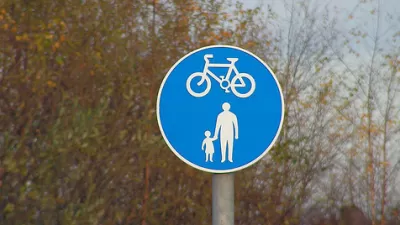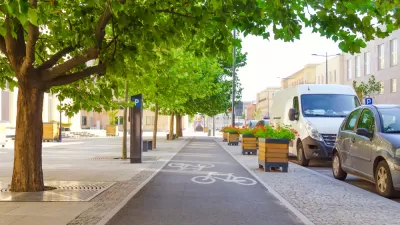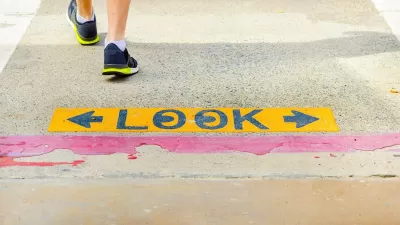An equity strategist offers advice on creating safe streets programs that address systemic racism.

Naomi Doerner, a consultant who helps bike and pedestrian advocates develop racial justice plans, gives Streetsblog her take on the blind spots in the planning community.
After addressing organizational culture and community outreach, Doerner points to Vision Zero as an example of a campaign hampered by a failure to analyze its relationship to systemic racism.
While its goal of eliminating traffic deaths is unassailable, Doerner suggests that the Vision Zero campaign has been implemented in a "top-down" manner that relies too much on police enforcement.
The problem, she says, is that the impacts of heavier policing are felt profoundly differently across socially disparate communities—and don't necessarily result in improved safety:
When you look at what is happening in communities of color in cities where we have this broken windows policing and you overlay this Vision Zero enforcement, there are concerns that it could lead to this kind of profiling or traffic stops.
Police are more likely to stop black and Latino drivers for minor infractions, Streetsblog points out; more troublingly, a recent study found this to be an important factor in the disproportionately high number of police killings of black and Latino people.
"This particular Vision Zero analysis had not been done by the advocacy community," Doerner notes. She continues:
I think that a lot of that really does have to do with the fact that a lot of the organized bike and walk community are not comprised of people of color. There are a very high number of people of color who bike and walk. But generally, they’re not really helping shape policy or the campaigns.
It doesn’t mean that you throw out everything about Vision Zero. It just means we have to use analysis tools to figure out who could very well be negatively impacted and develop alternatives.
FULL STORY: Naomi Doerner on How Street Safety Advocates Can Support Racial Justice

Alabama: Trump Terminates Settlements for Black Communities Harmed By Raw Sewage
Trump deemed the landmark civil rights agreement “illegal DEI and environmental justice policy.”

Planetizen Federal Action Tracker
A weekly monitor of how Trump’s orders and actions are impacting planners and planning in America.

How Atlanta Built 7,000 Housing Units in 3 Years
The city’s comprehensive, neighborhood-focused housing strategy focuses on identifying properties and land that can be repurposed for housing and encouraging development in underserved neighborhoods.

In Both Crashes and Crime, Public Transportation is Far Safer than Driving
Contrary to popular assumptions, public transportation has far lower crash and crime rates than automobile travel. For safer communities, improve and encourage transit travel.

Report: Zoning Reforms Should Complement Nashville’s Ambitious Transit Plan
Without reform, restrictive zoning codes will limit the impact of the city’s planned transit expansion and could exclude some of the residents who depend on transit the most.

Judge Orders Release of Frozen IRA, IIJA Funding
The decision is a victory for environmental groups who charged that freezing funds for critical infrastructure and disaster response programs caused “real and irreparable harm” to communities.
Urban Design for Planners 1: Software Tools
This six-course series explores essential urban design concepts using open source software and equips planners with the tools they need to participate fully in the urban design process.
Planning for Universal Design
Learn the tools for implementing Universal Design in planning regulations.
Jessamine County Fiscal Court
Caltrans
Institute for Housing and Urban Development Studies (IHS)
City of Grandview
Harvard GSD Executive Education
Toledo-Lucas County Plan Commissions
Salt Lake City
NYU Wagner Graduate School of Public Service





























